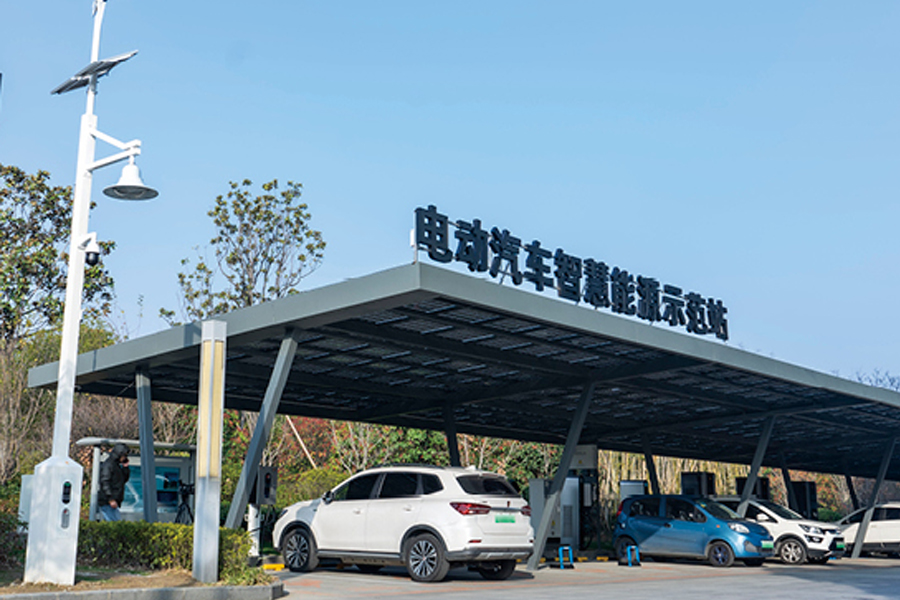Industry News
Distributed Photovoltaic Power Stations Gain Momentum in Renewable Energy Landscape
Distributed photovoltaic power stations (DPPS) are becoming an increasingly important solution for energy generation across the globe. These decentralized solar power systems, which are installed closer to where energy is consumed, offer a viable alternative to traditional large-scale power plants. By harnessing the power of the sun, distributed photovoltaic power stations contribute to reducing reliance on fossil fuels, enhancing energy security, and promoting sustainable development in both urban and rural areas.

A distributed photovoltaic power station typically consists of a network of solar panels installed on rooftops, open fields, or other suitable spaces that generate electricity and feed it into the local grid. Unlike centralized power plants, which require long-distance transmission lines to deliver power to end users, DPPS operate on a smaller, localized scale. This decentralization reduces the energy loss that often occurs during long-distance electricity transmission and provides greater flexibility for grid management.
One of the key advantages of distributed photovoltaic power stations is their ability to promote energy independence. As solar power generation occurs locally, the need for reliance on centralized power plants and imported fossil fuels is minimized. This is particularly important for regions that seek to reduce their vulnerability to energy price fluctuations or supply disruptions. For rural areas or remote communities, DPPS can provide a reliable, cost-effective way to meet their electricity needs without the need for extensive infrastructure investments.
Another significant benefit of distributed photovoltaic power stations is their positive impact on the environment. Solar energy is a renewable resource that generates no greenhouse gas emissions or air pollution during electricity production. By integrating DPPS into existing buildings and infrastructure, communities can contribute to the global effort to combat climate change. Additionally, solar power systems require minimal maintenance and have a long lifespan, making them a durable and sustainable energy source for years to come.
Distributed photovoltaic power stations also play an important role in the modernization of energy grids. DPPS can help stabilize grids by providing localized generation that can be more easily controlled and integrated with other forms of renewable energy, such as wind and hydropower. Furthermore, advances in energy storage technologies, such as batteries, are helping to mitigate the intermittency of solar power, allowing DPPS to provide a more consistent and reliable energy supply.
The growing popularity of distributed photovoltaic power stations is also driven by the increasing affordability of solar technology. Over the past decade, the cost of solar panels has significantly decreased, making it more accessible for individuals, businesses, and municipalities to invest in photovoltaic systems. Additionally, government incentives and subsidies aimed at promoting renewable energy adoption have further encouraged the installation of DPPS. Many countries have introduced feed-in tariffs, tax credits, and other financial incentives to support solar energy projects, making it more attractive for both commercial and residential customers to adopt distributed solar solutions.
In urban settings, DPPS are particularly appealing due to the availability of unused rooftop space. Buildings, warehouses, and other structures can easily accommodate solar panels, turning otherwise wasted space into productive energy sources. This not only helps reduce the building’s reliance on grid power but can also generate additional income through net metering, where excess electricity is fed back into the grid for compensation.
In conclusion, distributed photovoltaic power stations are shaping the future of renewable energy by providing a decentralized, reliable, and sustainable way to generate electricity. Their environmental benefits, energy independence, and integration with modern energy grids make them a crucial component in the global shift towards cleaner energy.
Next
Modular Photovoltaic Cabins Revolutionize Sustainable Living and Energy Solutions
<p><a href="/product/" target="_blank">Modular photovoltaic cabins &...
View More- PRODUCTS
- New Energy Power Distribution Equipment
- Box Type Substation
- Cable Branch Box/Switch Station
- High Voltage Switchgear
- Low Voltage Switchgear
- Engineering Vacuum Circuit Breaker
- New Energy Vehicle Floor Charging Pile
- Commercial Energy Storage
- Photovoltaic Complete Box
- High Voltage Arrester
- INFORMATION
-
-
Phone+86-13868788848
+86-13356188725 -
Tel+86-0577-88810567
-
E-mail
-
AddNo. 59, Youyi Road, Xinguang Industrial Zone, Liushi Town, Yueqing City, Zhejiang, China
-
- ENQUIRE WITH US
Photovoltaic Module Manufacturer




 English
English  中文简体
中文简体  русский
русский  Español
Español  عربى
عربى 


